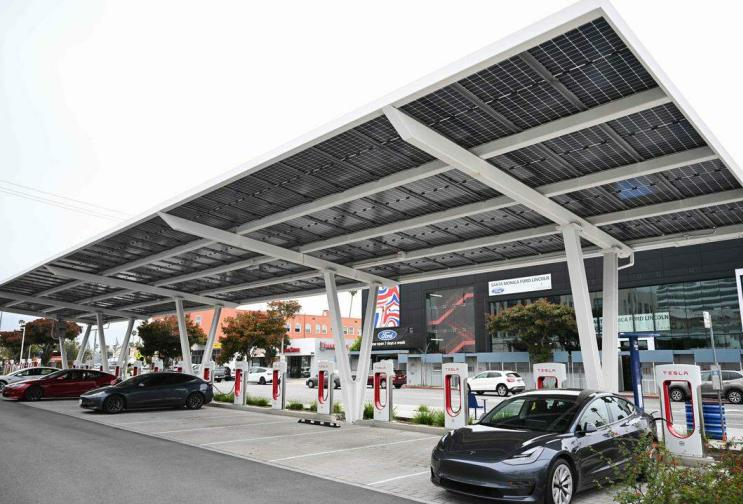
Canadian Prime Minister Justin Trudeau sought to align himself with the United States on economic and trade issues as his government unveiled a series of proposed measures to crack down on imports of Chinese-made electric vehicles.
Finance Minister Chrystia Freeland on Monday announced the launch of a 30-day public consultation period, the first step before Canada imposes tariffs on Chinese electric vehicles. Bloomberg News first reported Canada's plans to raise tariffs last week.
Canada has been under pressure to coordinate its trade policy on China with its G7 Allies. The United States last month announced plans to nearly triple tariffs on Chinese-made electric vehicles to a top rate of 102.5 percent. The European Union also plans to raise tariffs on Chinese electric vehicles, with tariffs of up to 48% on some vehicles.
Trudeau is also under pressure at home. Canada's auto industry has been pressing him to raise tariffs to protect jobs and wages at home, saying Chinese electric vehicles are cheaper because of much weaker Labour standards.
Canada's free trade agreements with the United States and Mexico are due for a joint review in 2026, and the country's industry groups have urged the Trudeau government to ensure Canada is not seen as a gateway to cheap Chinese goods entering North America.
But Trudeau has moved cautiously in raising tariffs on Chinese goods. China is Canada's second largest trading partner after the United States.
Some environmentalists also oppose the move, fearing that raising tariffs on electric vehicles will only drive up prices and discourage consumers from embracing cleaner technology.
Despite the recent surge in the value of Chinese electric vehicles imported into Canada, there has been little involvement of local Chinese automakers so far. The vast majority of the electric vehicles Canada imports from the country are made by the US company Tesla at its factory in Shanghai.

Driven by the Trump administration's push to relax financial regulations and the recovery of investment banking business, the market value of the six major banks in the United States has cumulatively increased by approximately 600 billion US dollars by 2025.
Driven by the Trump administration's push to relax financia…
On Christmas evening, U.S. President Trump posted on social…
According to multiple foreign media reports, the recent fin…
The middle class, once regarded as the cornerstone of Ameri…
On December 19th local time, the US military launched a lar…
The Boxing Day sunshine should have cast a false glow of pr…